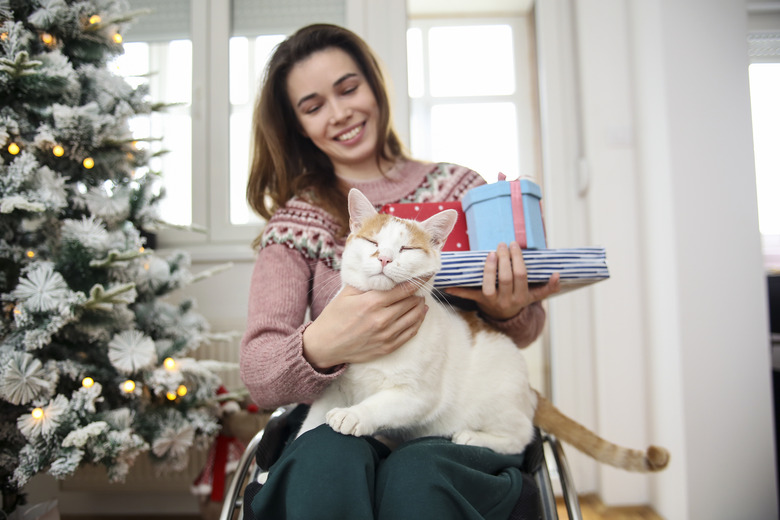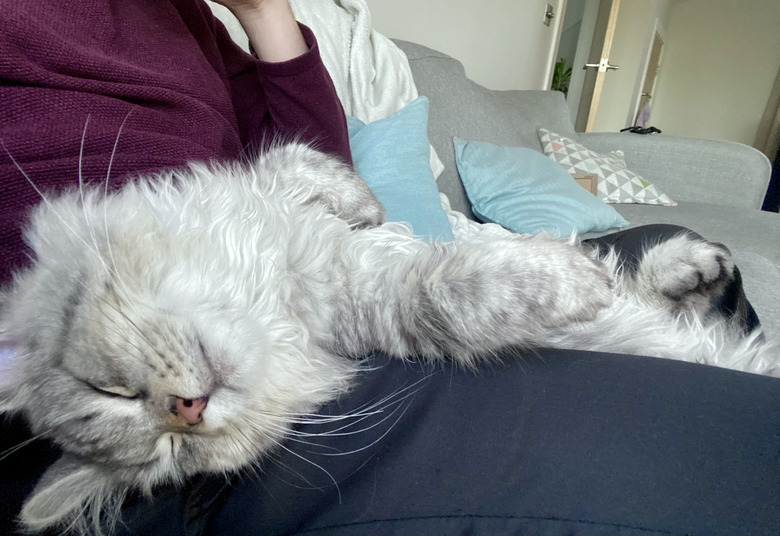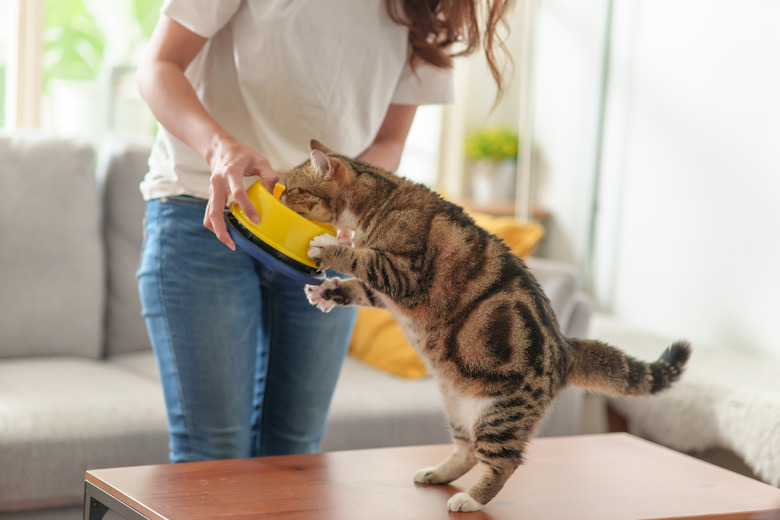Loratadine Dosage For Cats
Loratadine, commonly known by the brand name Claritin, is an over-the-counter, oral antihistamine medication designed for people with allergy symptoms. Of course, cats get allergies just like people do, including sneezing, wheezing, itchy skin, red or watery eyes, congestion, coughing, facial pain (similar to sinus pain in humans), and/or inflammation of the skin (known as cat dermatitis). In some cases, human medications can be used off label for cats, but this is not always the case.
Can I give my cat Claritin?
Can I give my cat Claritin?
The short answer is: Yes, there are circumstances where your veterinarian may recommend giving your cat Claritin ... but the longer answer is that it may not be the best choice. Human decongestants, like pseudoephedrine and phenylephrine, should NOT be given to cats or dogs.
It's important to be aware that Claritin is not approved for use in cats. There are studies that show little effectiveness of Claritin in pets. Like cetirizine (brand name Zyrtec), fexofenadine (brand name Allegra), or diphenhydramine (brand name Benadryl), Claritin's use in cats and dogs is considered off label. Additionally, there are medicines specifically designed for cat allergies that may be more effective, whereas Claritin is designed specifically for humans.
That said, Claritin can be given to cats under certain circumstances but only with a veterinarian's guidance. It should be noted that Claritin products come in different formulations, and it's important to read the ingredients and speak with your veterinarian before giving this (or any human medication) to a cat. Claritin syrup, for example, is preserved in propylene glycol, which should not be given to cats. Claritin-D, which also contains a decongestant called pseudoephedrine, has a very narrow margin of safety in animals.
Brand names and other names for Loratadine
Brand names and other names for Loratadine
Loratadine is a medicine used to relieve symptoms of allergies, such as runny nose; sneezing; or itchy eyes, nose, or throat.
U.S. brand names for Loratadine include:
- Alavert
- Children's Claritin
- Children's ClearAtadine
- Children's Dimetapp ND Allergy
- Claritin
- Claritin Reditabs
- Clearatadine
- Loradamed
- Triaminic Allerchews
Uses of Claritin for cats
Uses of Claritin for cats
Pet allergies are not uncommon, and cats can have allergic reactions to fabrics (such as wool); substances (like flea collars or shampoos); certain foods, pollens, and molds; and, of course, fleas. They may also have seasonal allergies. Unlike with people, histamine does not play a big role in cat seasonal allergies. Hence, an anti-histamine like Claritin won't be of much benefit.
Just as with humans, when cats encounter something to which they are allergic, the allergens trigger the cat's immune system, causing them to sneeze, scratch, suffer from hair loss, or even have digestive problems.
Claritin is one possible treatment for allergies, though a veterinarian may recommend something specifically designed for cats since studies do not conclusively show Claritin as being effective in treating pets.
Loratadine dosage for cats
Loratadine dosage for cats
The usual dosage for cats is 0.25 milligrams per pound every 24 hours. For a 10-pound cat, that would be 2.5 milligrams given once in a 24-hour period. Always check with your veterinarian before giving this or any medication to your pet.
Side effects of Claritin for cats
Side effects of Claritin for cats
While Claritin is generally considered safe when administered appropriately by a veterinarian, it does have some potential side effects in pets. These include:
- Sedation or drowsiness
- Lethargy
- Dry mouth
- Vomiting
- Diarrhea
- Decreased tear production
In the case of severe vomiting or very bad diarrhea, a veterinarian should be consulted immediately. Claritin should not be given to cats who have liver disease or kidney disease, are pregnant or nursing, or who have dry eye.
Other drugs that may interact with Claritin include cimetidine and ketoconazole. Be sure your veterinarian is aware of any drugs your cat is taking prior to prescribing Claritin.
Concurrent treatment
Concurrent treatment
There are a variety of prescription medications for cats with allergies. Since these are actually designed for use in cats, they may provide better results than Claritin.
In addition to other medications, a cat suffering from allergies may benefit from a medicated shampoo or topical spray if the allergy is causing itching or hair loss, a flea treatment if fleas are the cause, or the removal of a substance from the cat's diet or environment.
Another cause of itching in cats is mites, so they may need treatment for that. Also, some itchy cats have ringworm (skin fungal infection). Skin tests can be done on cats to determine if they have environmental allergies and allergy shots (immunotherapy) can be made just for them.
Duration of treatment
Duration of treatment
The duration for treating a cat's allergy will vary depending on whether the condition is chronic or seasonal and whether it is environmental or food-based. When cats have a food allergy, it's usually to a protein in their diet that they don't tolerate like chicken, beef, or fish. Or the trigger can be parasite-based. Some itchy cats may need to be on a year-round flea preventative. If the trigger can be removed from the environment, treatment can be short term. If the allergy is seasonal, the cat may only need the medication when the trigger, such as pollen, is active.
The bottom line
The bottom line
While some veterinarians may prescribe the human drug Loratadine (brand name Claritin) to treat a cat's allergies, there are medicines specifically designed for cat allergies that may be more effective. There are some studies that show little effectiveness of Claritin in pets, and some formulations of Claritin contain additional ingredients that are not safe for cats. Claritin should only be given to a cat under a veterinarian's supervision.



